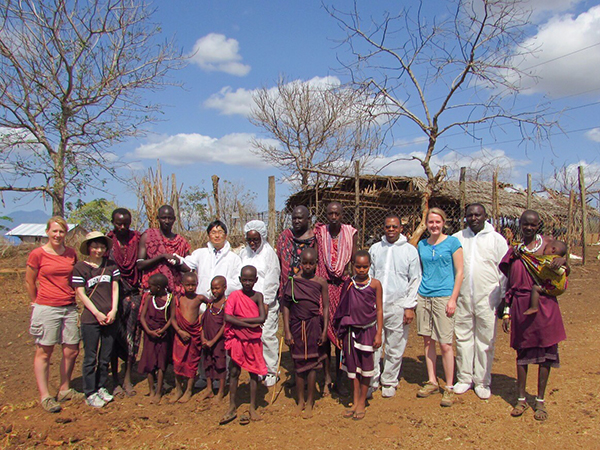Ecology with Emphasis on the Environment
 Wataru Yamazaki, D.V.M., Ph.D., Professor
Wataru Yamazaki, D.V.M., Ph.D., Professor
Overview
There are various pathogenic microorganisms in the environment. Infectious diseases are caused by various pathogenic microorganisms in the environment, including animals. Also, the epidemic of infectious diseases has various effects and changes in our society. There are many unclear points about how these pathogens emerged in the environment including the body of animals and their ecology in the environment. We use ecological approaches to analyze how various factors related to individual pathogenic microorganisms and the infectious diseases they cause.
Research and Education
Microorganisms possessed by animals are particularly important risk factors affecting human health. While we have gained many benefits from the domestication of wild animals since 10,000 years ago, enterohemorrhagic Escherichia coli O157, which can be non-pathogenic in the intestines for cattle, causes severe gastroenteritis for humans through the intake of beef. Cholera caused a pandemic by imperialism and globalization that accelerated in the 19th century. In Europe, control of water-borne infectious diseases has progressed as a result of the development of water and sewage systems and the accumulation of microbiological knowledge as countermeasures against cholera. Currently, we are collaborating with researchers in Asia, Africa and Europe to conduct education and research mainly on human intestinal and animal infections. We would like to contribute to elucidating the environmental ecology of various pathogenic microorganisms, controlling infectious diseases, and ensuring food safety by developing a highly reliable detection method and applying it to epidemiological studies. We will also approach the social changes and historical effects caused by infectious diseases through transdisciplinary research.
Achievements
- Matsumura, Y., Yamazaki, W., Noguchi, T., Yamamoto, M., Nagao, M. 2023. Analytical and clinical performances of seven direct detection assays for SARS-CoV-2. Journal of Clinical Virology Plus 3(1) 100138.
- Yamazaki, Y., Thongchankaew-Seo, U., Yamazaki, W. 2022. Very low likelihood that cultivated oysters are a vehicle for SARS-CoV-2: 2021–2022 seasonal survey at supermarkets in Kyoto, Japan. Heliyon 8(10) e10864.
- Yamazaki, W., Matsumura, Y., Thongchankaew-Seo, U., Yamazaki, Y., Nagao, M. 2021. Development of a point-of-care test to detect SARS-CoV-2 from saliva which combines a simple RNA extraction method with colorimetric reverse transcription loop-mediated isothermal amplification detection. Journal of Clinical Virology 136(3) 104760.
- Makino R, Yamazaki Y, Nagao K, Apego F V, Mekata H, Yamazaki W. 2020. Application of an improved micro-amount of virion enrichment technique (MiVET) for the detection of avian influenza A virus in spiked chicken meat samples. 2020. Food and Environmental Virology 12(2) 167-173.
- Yamazaki, W., Makino, R., Nagao, K., Mekata, H., Tsukamoto, K. 2019. New micro-amount of virion enrichment technique (MiVET) to detect influenza A virus in the duck feces. Transboundary Emerging Diseases 66(1) 341-348.


Photos show fieldwork landscape in Tanzania.
Ecology with Emphasis on the Environment
Wataru Yamazaki, D.V.M., Ph.D., Professor
Center for Southeast Asian Studies
Tel.: +81-75-753-9618
Fax: +81-75-761-2701
Email: yamazaki(at)cseas.kyoto-u.ac.jp